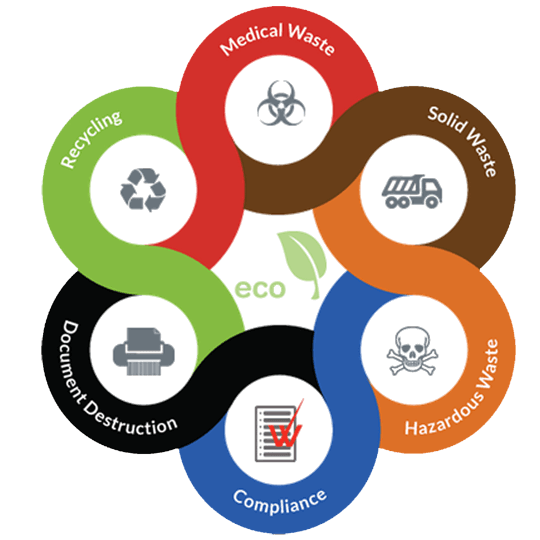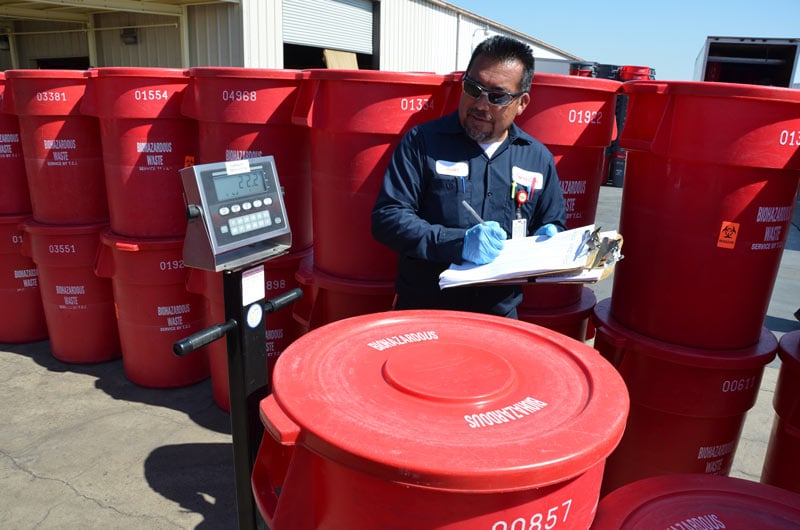The Importance of Correctly Managing Clinical Waste
Proper monitoring of clinical waste is of utmost relevance in medical care centers. The handling, storage, and disposal of medical waste call for rigorous adherence to guidelines and guidelines to make certain the safety and security of patients, health care employees, and the atmosphere. Inappropriate administration of medical waste can position serious health threats, including the transmission of contagious diseases and injuries from sharp objects. Improperly disposed of clinical waste can have destructive results on the setting, contaminating water sources and soil. Medical care facilities have lawful and governing commitments to appropriately handle clinical waste, and failure to comply can cause penalties and legal repercussions. By implementing best practices for safe handling and disposal of medical waste, healthcare professionals can reduce these dangers and add to a much safer and much healthier setting for all. Ample education and learning and training on waste administration are crucial for health care experts to fulfill their duties in this location.
Health And Wellness Risks Connected With Improper Waste Administration
Incorrect monitoring of medical waste positions significant health and wellness risks to both health care workers and the general public - WasteX Medical Waste Disposal. Medical waste, that includes sharps, infectious products, drugs, and contaminated materials, needs correct handling and disposal to stop the spread of infections, injuries, and direct exposure to hazardous substances
Among the main health and wellness risks related to incorrect medical waste monitoring is the transmission of infectious conditions. Medical care workers who enter contact with polluted waste might contract conditions such as HIV, hepatitis, or various other bloodborne microorganisms. If medical waste is not properly disposed of, it can pollute the atmosphere, water sources, and even food, leading to the spread of conditions within the neighborhood (medical waste removal service).
Incorrect waste monitoring can additionally bring about injuries, particularly from sharps such as needles, scalpels, and busted glass. Unintended needle punctures can cause the transmission of bloodborne diseases, while cuts from sharp things can cause severe wounds and infections.
Additionally, the improper disposal of pharmaceutical waste can result in the contamination of water products. When run out or unused medicines are flushed down the toilet or disposed of inappropriately, the chemicals can leach right into water sources, influencing water life and possibly going into the human food web.
Ecological Influence of Improperly Disposed Medical Waste
One of the considerable consequences of insufficient monitoring of medical waste is its harmful effect on the atmosphere. Improperly disposed clinical waste positions a significant risk to ecosystems, water bodies, and the total balance of the setting. WasteX Medical Waste Disposal. The dangerous products included in medical waste, such as infectious representatives, pharmaceuticals, and chemicals, can contaminate air, dirt, and water, causing prevalent air pollution and destruction
When clinical waste is not correctly set apart, dealt with, and disposed of, it can discover its means into water bodies via improper garbage dump methods or illegal disposing. This can cause the contamination of groundwater and surface area water, influencing water life and possibly polluting alcohol consumption water resources. The launch of damaging chemicals and pharmaceuticals right into the environment can interfere with ecological communities and injury both animal and plant varieties.
Additionally, improper incineration of clinical waste can launch poisonous toxins, including dioxins and furans, right into the environment. These pollutants have actually been connected to various health issues, consisting of breathing issues, reproductive conditions, and even cancer. The release of greenhouse gases throughout incineration additionally contributes to climate change.
To minimize the environmental effect of improperly disposed medical waste, it is important to implement correct waste administration techniques. This consists of partition of waste at the source, suitable treatment approaches, and safe disposal strategies. By doing so, we can decrease the contamination and safeguard the setting from the harmful effects of medical waste mismanagement.
Regulatory and lawful Responsibilities for Healthcare Facilities
In order to address the ecological influence of incorrectly disposed medical waste, healthcare facilities are required to stick to regulatory and lawful commitments. These obligations are put in area to ensure the correct handling, storage, transport, and disposal of medical waste in a environmentally responsible and secure fashion.
One of the vital legal obligations for medical care facilities is to get the needed authorizations and licenses for managing medical waste. This includes getting a waste generator identification number and conforming with government, state, and local laws. Healthcare facilities have to also maintain in-depth records of the kinds and amounts of clinical waste created, as well as the methods made use of for its disposal.
Furthermore, medical care facilities should execute correct segregation and packaging procedures for various kinds of clinical waste, such as sharps, transmittable waste, and pharmaceutical waste - medical waste removal. This consists of making use of leak-proof containers, biohazard bags, and sharps containers that fulfill regulatory criteria
Health care centers are also responsible for guaranteeing that their staff obtain proper training on the proper handling and disposal of clinical waste. This consists of training on infection control, personal protective equipment, and waste management protocols.
Finest Practices for Safe Handling and Disposal of Medical Waste
To make certain the safe handling and disposal of medical waste, health care facilities need to implement finest methods. These practices are vital to secure the health and wellness of both healthcare employees and the general public. The appropriate monitoring of medical waste is crucial in preventing the spread of infectious conditions and reducing environmental contamination.
One of the very best techniques WasteX Medical Waste Disposal for safe handling and disposal of clinical waste is segregation. Health care facilities must divide various kinds of medical waste, such as sharps, transmittable products, and pharmaceutical waste, to stop cross-contamination. Proper labeling and color coding of waste containers also play a vital duty in making sure the right segregation of clinical waste.
Another vital best practice is the use of ideal containers for keeping and moving medical waste. These containers must be leak-proof, puncture-resistant, and properly sealed to stop any type of feasible launch of harmful materials. In addition, health care centers need to establish clear methods for the collection, storage, and transportation of clinical waste to minimize the danger of direct exposure and contamination.
In addition, medical care facilities must educate their staff on the correct handling and disposal of medical waste. Regular training sessions and refresher programs ought to be conducted to keep health care workers updated on the most up to date guidelines and standards. This will certainly aid ensure that everyone associated with the process is mindful of the potential threats and is outfitted with the required knowledge and abilities to handle clinical waste securely.
Education and Training for Medical Care Professionals in Waste Administration
Health care professionals need extensive education and learning and training in waste management to make sure the correct handling and disposal of medical waste. The administration of clinical waste is a crucial component of medical care operations as it straight affects the wellness and safety of both healthcare workers and the basic public. Proper education and training outfit medical care professionals with the needed expertise and abilities to deal with and dispose of medical waste in a secure and eco accountable fashion.
Education and training programs for medical care professionals in waste administration cover a variety of topics, including the classification and partition of clinical waste, correct packaging and labeling, transportation and storage demands, and the use of personal safety equipment. These programs also emphasize the relevance of adherence to regional, nationwide, and worldwide regulations and standards controling medical waste management.
By obtaining comprehensive education and training in waste management, medical care experts can properly minimize the threats linked with clinical waste, such as the transmission of infectious illness and the potential harm to the environment. WasteX Medical Waste Disposal. Furthermore, well-trained experts can identify and execute ideal practices that promote sustainability and effective waste administration methods within health care centers.
Continuous education and training in waste monitoring must be a continuous priority for healthcare experts, as waste administration practices and laws might develop with time. By remaining current with the most recent developments in waste monitoring, health care professionals can guarantee that they are outfitted with the understanding and skills required to make educated decisions and add to the total improvement of waste administration techniques in healthcare setups.

Conclusion
In final thought, proper monitoring of clinical waste is essential to reduce health dangers and reduce the ecological influence. Medical care centers have governing and lawful responsibilities to guarantee safe handling and disposal of medical waste. Following best techniques and giving education and training for health care experts in waste management are important for keeping a healthy and balanced and safe environment. By sticking to these standards, health care facilities can shield public health and wellness and protect the integrity of our ecosystems.

Healthcare experts call for extensive education and learning and training in waste management to make sure the correct handling and disposal of medical waste - medical waste disposal service. The management of medical waste is a critical element of health care procedures as it directly influences the health and safety of both medical care employees and the general public